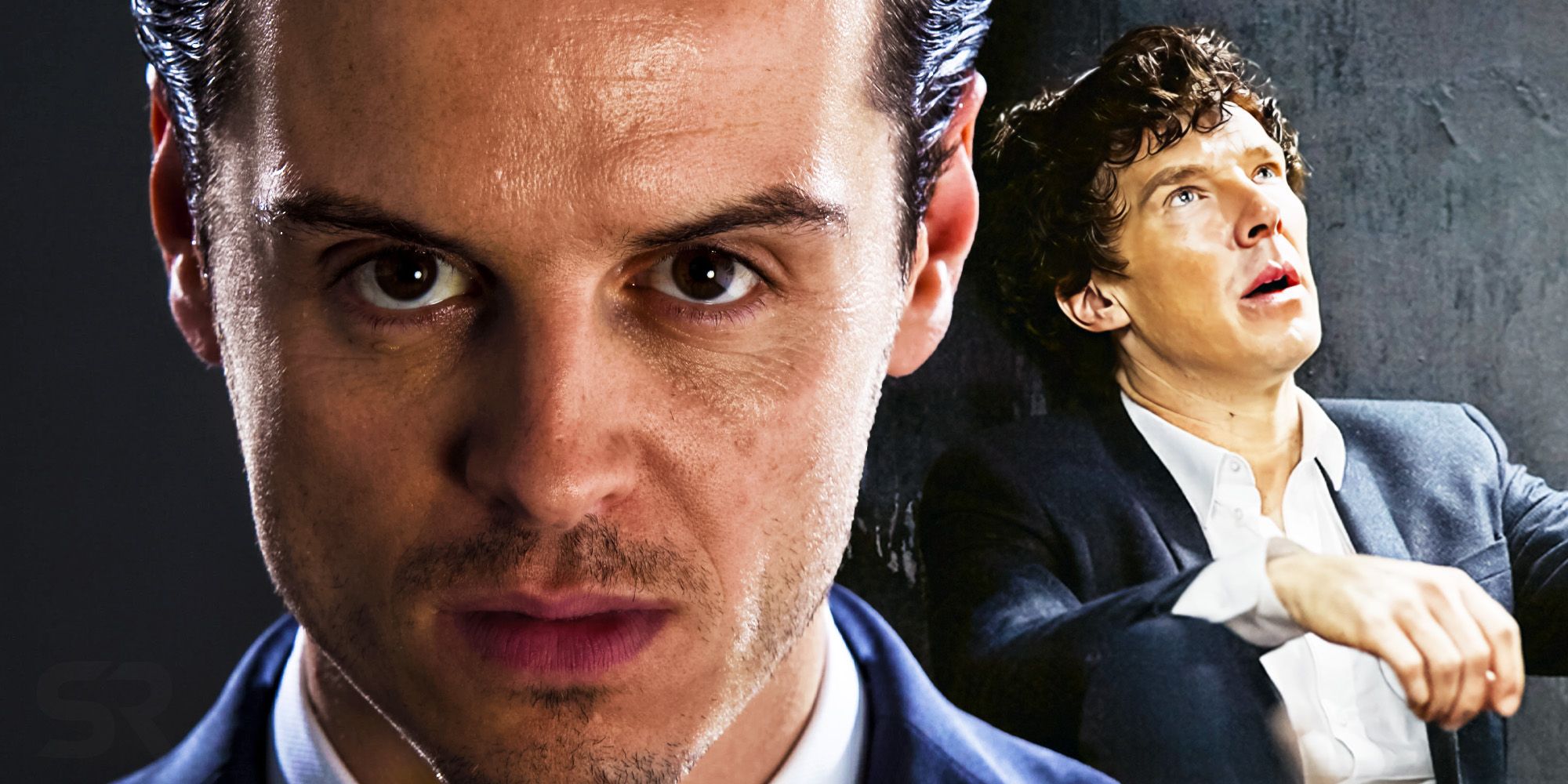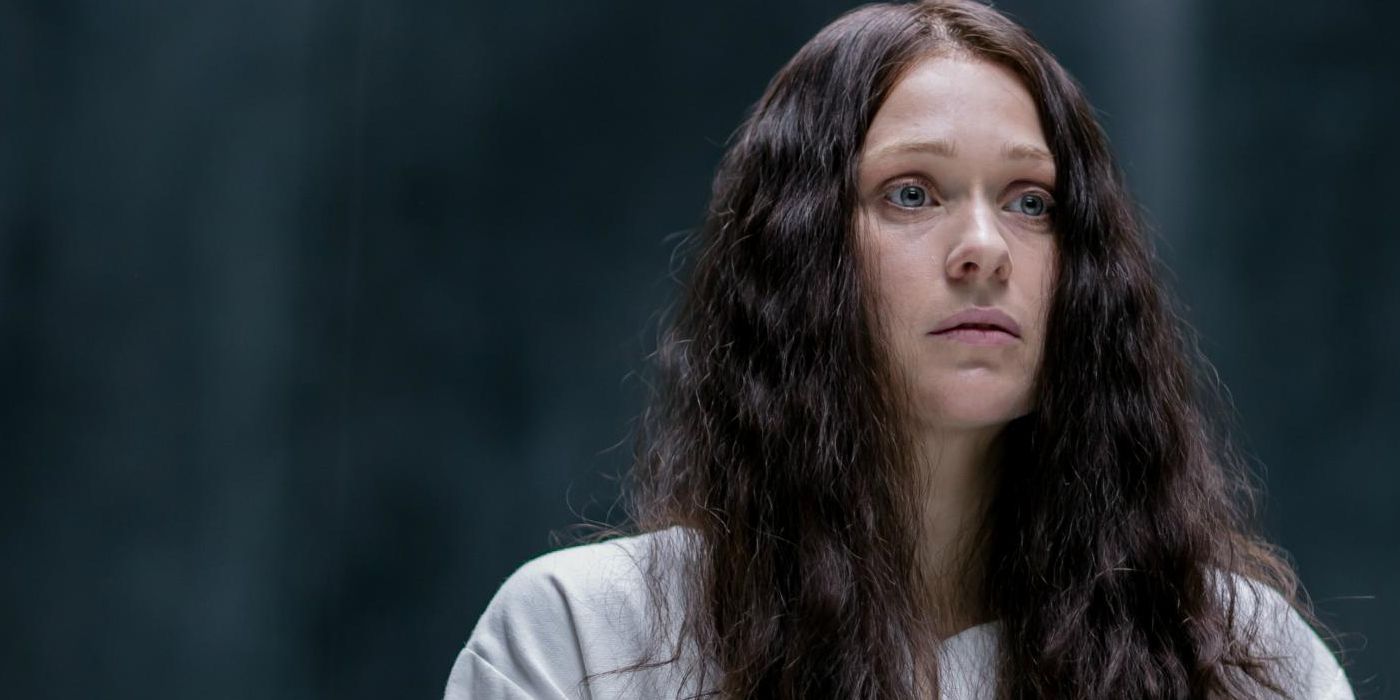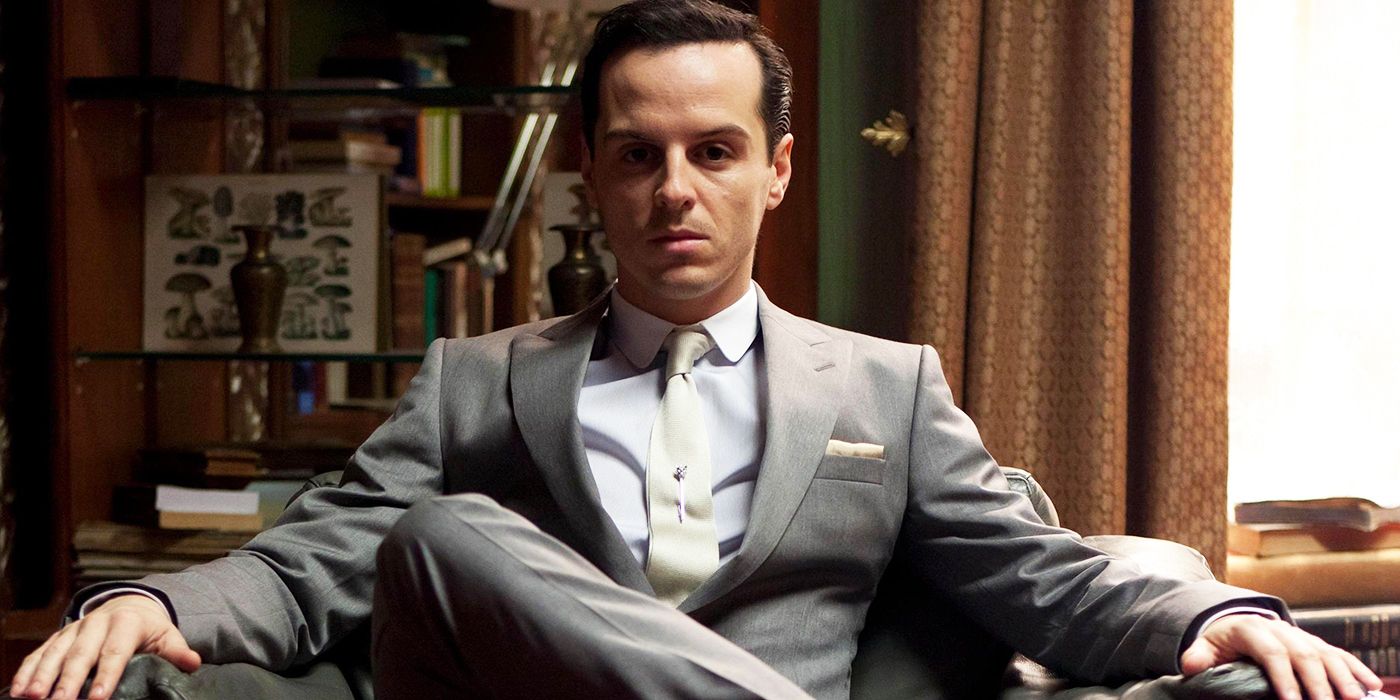By obsessing over Moriarty even after the villain's death, Sherlock failed two other major enemies of Benedict Cumberbatch's modernized sleuth. There is little doubt that Andrew Scott's Moriarty was the overarching villain of the BBC's Sherlock TV series. After season 1 set up his arrival, Moriarty took a central role in Sherlock season 2, which culminated in the criminal mastermind shooting himself in the head as part of an elaborate attempt to ensure Sherlock Holmes would leap from the St. Bartholomew's Hospital rooftop, and follow him into the afterlife. Sherlock, naturally, outsmarted him.
Despite Moriarty dying in the Sherlock season 2 finale, however, the BBC TV show refused to let the specter of Andrew Scott's character fade. A variety of methods were employed to keep Moriarty's presence alive after Sherlock season 2, including hallucinogenic period episodes, pre-recorded videos, flashbacks, teases for the villain's return, and a constant barrage of in-dialogue references. On one hand, Andrew Scott's performance as Moriarty was so memorable, making the absolute most of the character seems logical. On the other, it hurt Sherlock seasons 3 and 4.
Sherlock Needed To Leave Moriarty Behind After Season 2
Replacing Moriarty in the main antagonist role for Sherlock season 3 was Lars Mikkelsen as Charles Augustus Magnussen. A media mogul and fellow mind palace aficionado, Magnussen targeted Sherlock in order to gain control of the British government, and his machinations slowly played out across Sherlock season 3. Where Magnussen should have replaced Moriarty as main villain, however, Sherlock kept Mikkelsen's character firmly in his predecessor's shadow. "The Empty Hearse" and "The Sign of Three" focused heavily upon the aftermath of Moriarty's plan from the previous season, while Sherlock season 3 finale "His Last Vow" explicitly teased Moriarty's return with a creepy video, stealing Magnussen's thunder entirely.
Exactly the same problem hindered Sherlock season 4 main villain Eurus Holmes. Following the show's traditional formula, "The Six Thatchers" and "The Lying Detective" steadily dropped narrative breadcrumbs ahead of Eurus taking center stage in season finale "The Final Problem." Eurus' big moment was, however, undermined by a cameo appearance from Andrew Scott as Moriarty, who flashbacks revealed had visited Eurus in Sherrinford. Beyond just a cameo, Moriarty then narrated the series of challenges Eurus set for Sherlock. What should have been a battle between Holmes siblings unnecessarily had Moriarty's fingerprints all over it, stealing Eurus' thunder just like Magnussen's the season prior.
Moriarty Was Too Successful For Sherlock's Own Good
Sherlock's real "final problem" was an inability to let Moriarty's story end with season 2, but the show's creative duo of Steven Moffat and Mark Gatiss were not entirely unjustified in succumbing to this pitfall. Andrew Scott gave a career-making performance as Sherlock's nemesis, turning Sir Arthur Conan Doyle's original creation into a maelstrom of unpredictable evil. While Moriarty needed to die in order for the Reichenbach Fall fake death twist to work, it is understandable that Sherlock would take whatever measures necessary to ensure Scott's charismatic, unforgettable portrayal could somehow continue.
Ultimately, however, this decision proved detrimental to Sherlock's long-term prosperity. Magnussen and Eurus were both denied the opportunity to reach their full potential - and maybe even to reach Moriarty's level of renown - because Sherlock refused to let its first uber-villain go. Sherlock season 3 would have been stronger if the ending had focused squarely on Magnussen, rather than undercutting his demise with the fake-out return of Moriarty. Sherlock season 4 would have been stronger without retroactively adding a connection between Moriarty and Eurus. Just as Moriarty's obsession with Sherlock Holmes was detrimental to his health, so too was Sherlock's obsession with Moriarty.



